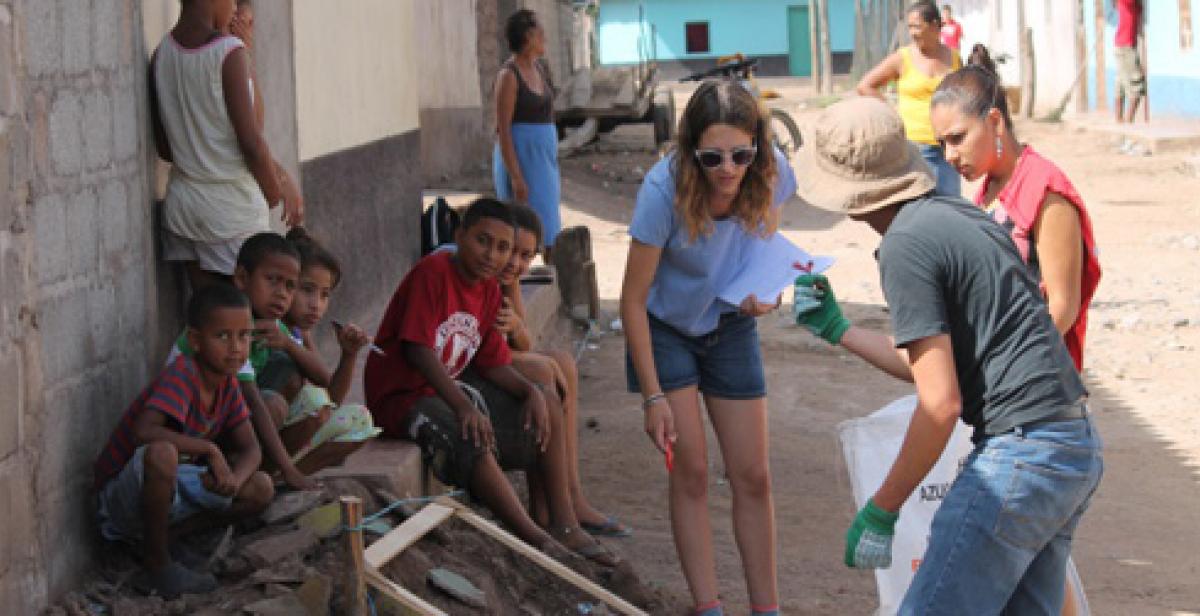The three towns we are working in are Guayape, Suyapita, and Santa Cruz; located in the centre of Honduras. We are starting a waste management project in these towns which means literally starting from the ground up. Currently, there is no system in place for collecting or treating waste, so the majority of it is dumped in ‘hotspot’ areas, around the towns or it is washed into certain areas by heavy rains. Finding these ‘hotspots’, as well as sampling in both fields and streets to measure the amount of waste, is key to designing a comprehensive waste management system which is appropriate and sustainable for the three communities.
Over the past week, equipped with homemade rope, hand crafted stakes and quadrats courtesy of the carpentry skills of the National Volunteers, we set out to measure three different areas within each community; streets, fields, and hotspot zones. A man named Don Otto (there are three different Ottos here) is the person in charge. He assisted in designing the method and in making it as fair and unbiased as possible.
Using the ropes, we created a sampling area, then using randomised numbers we identified the points in which we collected rubbish. This was then separated and weighed. This means we will have a more comprehensive view and better understanding of the rubbish problems in these three towns. These results will then be used to create a plan that will be better directed at the actual waste problems, grounded in facts and figures of the waste in the three communities.
It is difficult to imagine living in a place without a waste management system. The majority of people reuse as much rubbish as possible, so much so that glass bottles must be returned to the place they were bought from. Despite this, it is almost impossible to reuse certain goods, such as crisp packets and plastic. Possibly as a direct result of this, plastic was found to be the main waste product found in each of the communities.
We have started planning and designing a questionnaire for the three communities so that we have a better understanding of their attitudes towards waste and how each household manages their own waste presently. The results from this survey will enable us to also produce a broader and complete report that we will present to the mayor, Juan Orlando in the future.
Another aspect of this ICS placement is to experience the local culture. In this vein three volunteers, Otto, Wilander, and Carmen celebrated their birthdays this week in a typical Honduran fashion! Traditionally on your birthday you get a face full of cake, literally. Each person had to stick their face into the cake which, to be honest, wasn’t such a bad deal as the cake tasted like sweet marshmallowy goodness. It was, without a doubt, one of the best cakes we had ever tasted!
The ten of us are well and getting accustomed to life out here. We have almost streamlined our morning routines and figured out the secret to conserving as much water as possible, and creating as little waste as possible. We are in the process of starting a composting corner in the garden and have had two successful English lessons so far, which are being continued throughout our time here. The National Volunteers continue to teach us about the culture as we teach them about the UK. We are learning that we have a lot more in common than we previously thought! Overall, we are optimistic about our work here, as the community continues to support us in everything we do.
Won’t say that we don’t miss some Cadbury’s though!
Hasta pronto,
By ICS Volunteers Dehaja, Aaron & the Progressio team in Guayape
Photo by Holly Stower.



